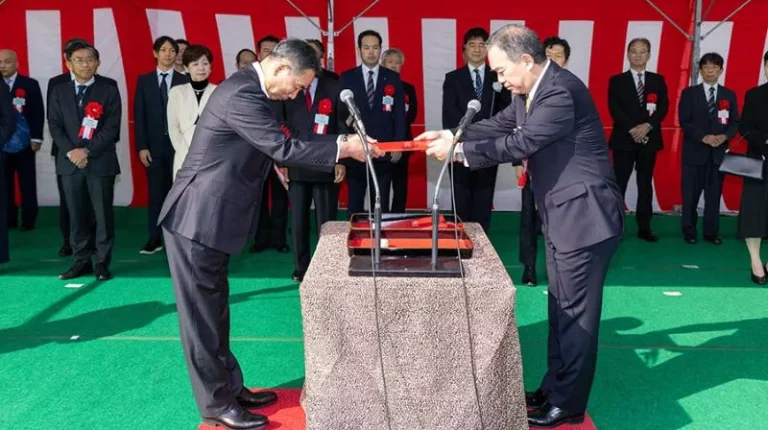Mitsubishi Shipbuilding has christened and handed over its test ship to transport liquefied carbon dioxide (LCO2) to Japan’s New Energy and Industrial Technology Development Organization (NEDO).
The ship will be used for NEDO’s large-scale carbon dioxide capture, utilization and storage (CCUS) R&D and demonstration project in Tomakomai. The christening ceremony took place at the Enoura Plant of MHI’s Shimonoseki Shipyard & Machinery Works in Yamaguchi Prefecture.
CCUS is gaining attention as an effective means of achieving a carbon-neutral society. Because sources of CO2 emissions are often located far from the sites selected for carbon utilization or storage, the demand for LCO2 carriers able to transport such cargo safely and economically is expected to increase.
MHI Group handled the entire design and construction of the vessel, including the cargo containment system. The vessel, named Excool, will be chartered by Nippon Gas Line to collect and analyze operational data through CO2 transportation demonstration tests as part of the project. Kawasaki Kisen Kaisha and Ochanomizu University will additionally be commissioned by the Engineering Advancement Association of Japan (ENAA), a consignee for the NEDO demonstration projects, as subcontractors to conduct safety assessments of LCO2 transportation operations and R&D for the ship’s LCO2 pressure control and stability, as well as develop and demonstrate technologies for safe and low-cost CO2 transportation.
The project is part of Mitsubishi Shipbuilding’s ‘Marine Future Stream’ growth strategy, which lays out a vision for the decarbonization of the maritime economy through renewable energy and the carbon cycle, autonomy and electrification. Mitsubishi Shipbuilding will actively pursue the commercialization of LCO2 handling systems and is aiming to achieve decarbonization.
For the latest Mitsubishi Shipbuilding news, click here.
To watch a video on CCUS, please click here.



